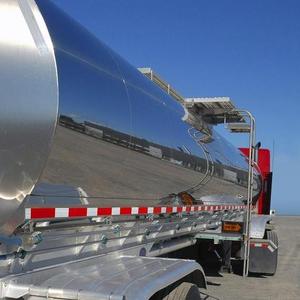List published of engine, vehicle makers approved for biodiesel

June 28, 2018
BY AGQM
A recent survey among commercial vehicle manufacturers shows that many trucks, buses and mobile machines are approved for higher blends of biodiesel. Even the latest Euro VI engines can be operated with standardized biodiesel blends of 20 percent, 30 percent (B20 or B30, standard EN 16709) and pure biodiesel (B100, standard EN 14214).
As can be seen from the approval list published jointly by the Association Quality Management Biodiesel (AGQM), Union for the Promotion of Oil and Protein Plants (UFOP) and the Association of the German Biofuel Industry (VDB), heavy-duty road traffic can use increasing quantities of biodiesel in the future.
“Our approval list shows that the use of biodiesel in the commercial vehicle sector is technically possible even with the currently most demanding emission standards,” said Richard Wicht, managing director at AGQM. “It is particularly useful to use climate-friendly biodiesel in heavy-duty transport, because there is no suitable alternative to liquid fuels in the long term.”
Advertisement
Advertisement
The survey covered 14 well-known commercial vehicle and large diesel engine manufacturers from Caterpillar to Zeppelin.
The mineral oil industry usually markets biodiesel as a B7 blend; however, the new approval list shows that biodiesel in modern commercial vehicles can also be used in higher admixtures (B20, B30) and as pure fuel (B100).
“Sustainably produced biodiesel is currently contributing significantly to the transport sector’s contribution to climate protection,” said Stephan Arens, managing director of UFOP. “The new list of vehicle approvals shows that significantly more greenhouse gases can be saved, if the existing possibilities were exhausted.”
Biodiesel and ethanol currently account for around 90 percent of renewable energy in the transport sector.
Advertisement
Advertisement
Biofuels in Germany are subsidized by the so-called greenhouse gas reduction quota (GHG quota). According to that, oil companies must reduce the greenhouse gas emissions of their fuels by a fixed percentage. Among other things, they use biodiesel, which emits about 70 percent less greenhouse gases than fossil diesel. The GHG quota currently stands at 4 percent, rising to 6 percent in 2020.
“The commercial vehicle and engine manufacturers have created the conditions in good time so that the rising GHG quota can be met with higher biodiesel mixes,” said Elmar Baumann, managing director at VDB.
The updated approval list shows at a glance which engine and vehicle types are approved for the use of biodiesel. The approval list is now available on the AGQM website at www.agqm-biodiesel.com/en/downloads/approvals. There you will also find the associated technical reports.
AGQM is an organization founded by leading companies of the German biodiesel industry. As a technical association AGQM predominantly deals with all issues concerning the quality management of biodiesel and its byproducts.
Related Stories
Global digital shipbuilder Incat Crowther announced on June 11 the company has been commissioned by Los Angeles operator Catalina Express to design a new low-emission, renewable diesel-powered passenger ferry.
ATR and French SAF aggregator ATOBA Energy on June 19 signed a memorandum of understanding (MOU) to explore ways to facilitate and accelerate sustainable aviation fuel (SAF) adoption for ATR operators.
Argent Fuels, a leading provider of carbon-saving fuels in the UK, is accelerating its efforts to support a greener future. The expansion of its High Blend Biodiesel will supply to bus, coach, HGV fleets and rail in the south of the UK.
Sprague Operating Resources LLC on June 24 announced it has been selected by the New York City Department of Citywide Administrative Services to supply renewable diesel for its marine fleet, including the iconic Staten Island Ferry.
On June 17, the NYC Department of Citywide Administrative Services and the Department of Transportation announced the start of the Staten Island Ferry’s transition to renewable diesel, marked by the delivery of the first barge of fuel.
Upcoming Events










